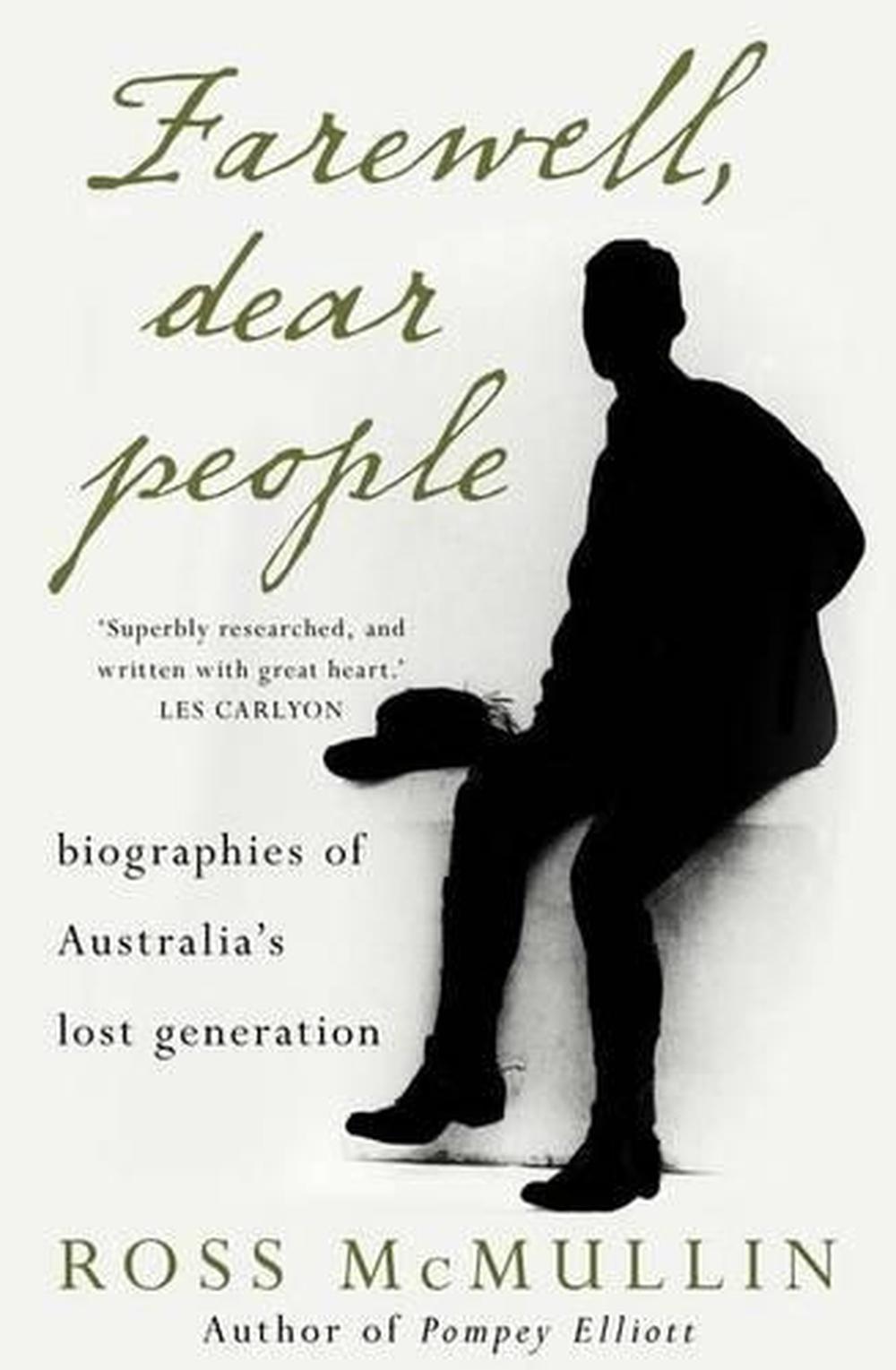
Farewell, Dear People: Biographies of Australia's lost generation
biographies of australia's lost generation
$44.01
- Paperback
608 pages
- Release Date
20 March 2012
Summary
Farewell, Dear People: Unearthing Australia’s Lost Generation
For Australia, a new nation with a relatively small population, the death of 60,000 soldiers during World War I was catastrophic. It is hardly surprising, then, that Australians evaluating the consequences of the conflict have tended to focus primarily on the numbing number of losses — on the sheer quantity of all those countrymen who did not return.
That there must have been extraordinary individuals among them h…
Book Details
| ISBN-13: | 9781921844669 |
|---|---|
| ISBN-10: | 1921844663 |
| Author: | Ross McMullin |
| Publisher: | Scribe Publications |
| Imprint: | Scribe Publications |
| Format: | Paperback |
| Number of Pages: | 608 |
| Release Date: | 20 March 2012 |
| Weight: | 862g |
| Dimensions: | 235mm x 155mm x 46mm |
What They're Saying
Critics Review
“There is so much to admire and to praise in this book. The research is prodigious, the storytelling hypnotic, the confidence and clarity of the writer remarkable… .
“This is the work of a real historian who has gotten his hands dirty doing real work…a powerful and valuable book.” –Craig Stockings, Australian Historical Studies
“There is so much to admire and to praise in this book. The research is prodigious, the storytelling hypnotic, the confidence and clarity of the writer remarkable. Do not for a second think of this book as military history only or mostly … McMullin writes as well about sport as he does about war, or medical research, or wine-making, or Antarctic exploring. Such is the range and scope of this book and such were the skills required of its author … This is a rich book, to be sure. One that I read with such pleasure and admiration. It is a wonderful tribute to the 10 men whose lives we discover for the first time, an extraordinary account of Australia from about the 1870s and into the 1930s, and deeply moving.” –Michael McKernan, Canberra Times
“McMullin has set a new standard in Australian military biography, for which he must be congratulated. Very highly recommended.” –Ron Austin, Mufti
“McMullin would once have been placed in the Charles Bean tradition of military history. Now, McMullin is the Bean tradition. This is a remarkably good book … Farewell, Dear People has elevated the study of Australia’s involvement in the Great War to a new dimension.” –Stephen Loosley, The Spectator
“Farewell, Dear People is a powerful revelation of the lasting cost of the Great War–a deeply felt engagement with lost lives, and a superb union of research and writing.” –Peter Stanley, author of Men of Mont St Quentin
About The Author
Ross McMullin
Ross McMullin is a historian and biographer whose main interests are Australian history, politics, and sport. He has researched and written extensively about the impact on Australia of its involvement in World War I.
Dr. McMullin’s books include his biographies, the award-winning Pompey Elliott and Will Dyson: Australia’s radical genius; his ALP history, The Light on the Hill; and another political history, So Monstrous a Travesty: Chris Watson and the world’s first national labour government.
Returns
This item is eligible for free returns within 30 days of delivery. See our returns policy for further details.




